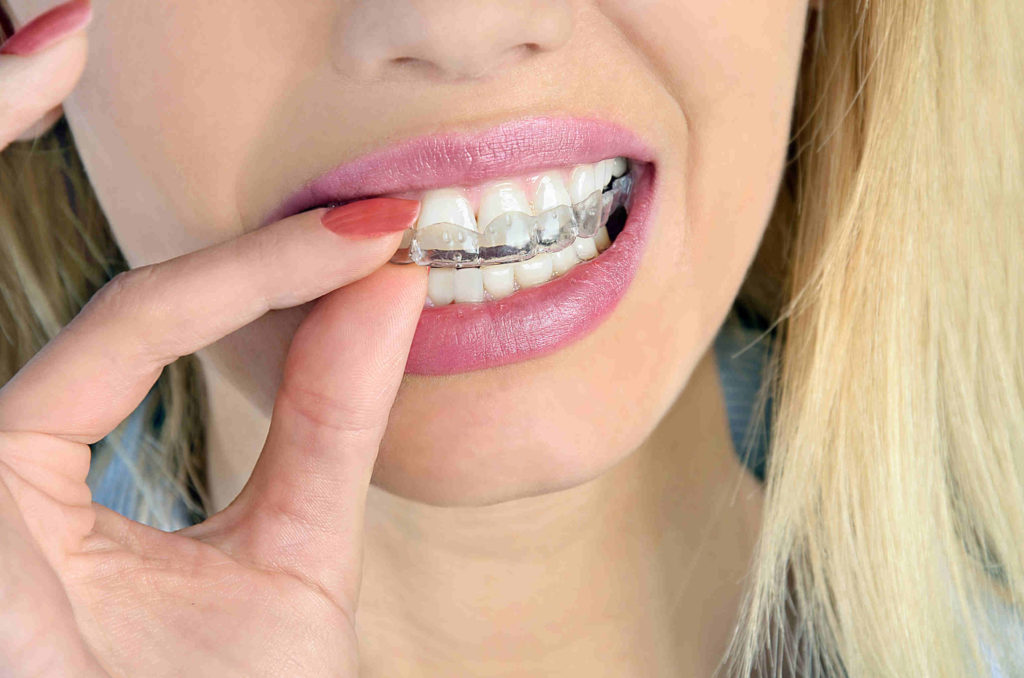Bruxism is the involuntary grinding or clenching of teeth. This disorder affects adults and children alike, without them always being aware of it. The severity and extent of bruxism can vary over the course of a lifetime. The Helvident team explains the causes, risks and solutions.
The different types of bruxism
Teeth grinding occurs most often during sleep. The reason is simple: the pressure exerted on the teeth is greater than that exerted during waking periods. Usually, a spouse or relative is aware of the noise and reports it to the person suffering from nocturnal bruxism.
However, it is possible to grind your teeth or clench your jaw during the day. This happens particularly during tasks that require concentration: driving the car, working on the computer, meetings and so on. This is known as daytime bruxism.
Symptoms of teeth grinding
The signs are not always easy to spot, as they can fade quickly. However, in the case of bruxism You may notice the following symptoms in particular:
- pain in the teeth or jaw, especially on waking;
- pain radiating to the face or temples, especially on waking;
- headaches;
- earaches;
- Sensitive, fractured or loose teeth;
- sensitivity to hot or cold foods and beverages.
If you clench your jaw during the day, you'll feel the symptoms more in the early evening.
Bruxism can lead to extreme pressure on the teeth. Over time, teeth grinding or jaw clenching can cause the following problems:
- cracked or broken teeth;
- breakage of a crown or filling;
- an increased risk of gum disease;
- accelerated wear of teeth, which become short, crumbling or sharp
- greater pressure on jaw joints and muscles.
It's important to recognize the early signs and symptoms of bruxism to avoid the consequences for oral and general health.
Causes of bruxism
Teeth grinding is generally linked to high levels of anxiety or stress. In such cases, the patient should receive comprehensive care for his or her physical and psychological health. In other cases, bruxism is the result of interrupted periods of sleep, or a lack of sleep. tooth misalignment.
Diagnosis and treatment options
Suspect that you're grinding your teeth? If in doubt, talk to your dentist. The professional will examine the condition of your teeth to detect any signs of wear. This way, you can limit the damage to your oral health.
Your dentist in Switzerland is the only person who can offer you the right treatment for your situation. However, tooth grinding itself cannot be treated. It is only possible to act on the consequences and, in some cases, prevent the damage. Here are some of the solutions currently available.
The best solution for nocturnal bruxism is to wear a custom-made mouthpiece. This equipment protects the upper teeth, which cannot come into contact with the lower ones. It also distributes pressure over the entire jaw.
Studies have shown the link between bruxism and stress, anxiety and depression. If you grind your teeth, it may be worth trying a relaxation technique that will benefit your overall health. You can choose from meditation, breathing exercises, sophrology or yoga, for example. Sport releases endorphins and reduces stress. You can also talk to someone close to you, or ask a psychologist to accompany you.
In bruxism, the jaws are under stress. Therapeutic injection of botulinum toxin (Botox) is a possible solution. This product blocks neuromuscular junctions and reduces both the power and volume of facial muscles. This treatment is recommended in cases where bruxism has led to masseterine and temporal hypertrophy.
If bruxism is the result of misaligned or missing teeth, your dentist will be able to refer you to a specialist. orthodontist. The specialist will correct the problem using a variety of techniques. Surgery is a last resort.
Tips to prevent bruxism
If you grind your teeth when you wake up, try to pay attention to it to correct this bad habit. Your dentist may suggest techniques to help you relax or loosen your jaw during the day. We recommend that you find ways to relax before going to bed so you can get a good night's sleep. Stress-reducing activities are also highly beneficial. Try yoga, meditation, deep-breathing exercises, massage, listening to music or taking a bath. Finally, it's best to limit caffeine and alcohol consumption.

